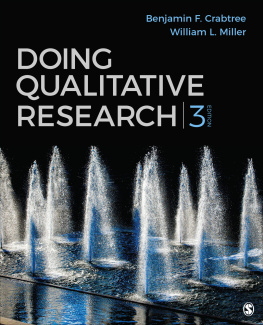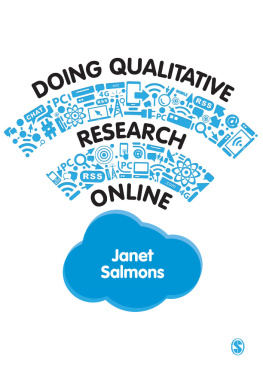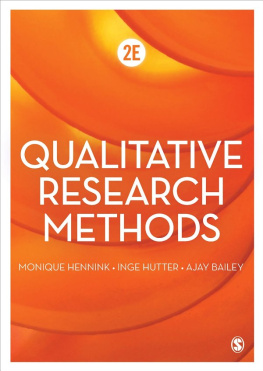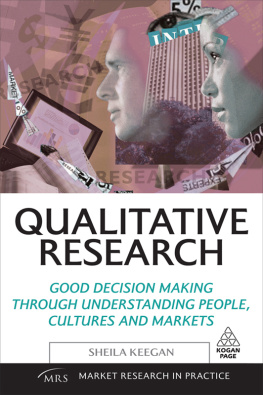Chapter 1
Ethics in Qualitative Research
ABSTRACT
This chapter exposes readers to practical techniques of handling ethics in qualitative research projects. Researchers will be able to understand qualitative research ethics for human and non-human research projects. The intellectual property discussion is central to qualitative research projects; readers will be exposed to the steps of undertaking intellectual property rights discussion. The chapter is divided into five sections; readers will be able to experience the dangers of overlooking ethics when undertaking qualitative research projects, and the chapter suggests possible solutions to reduce and control risks that are connected to the violations of research ethics.
1 KEY CONCEPTS
- Ethics a study of what is right and wrong when undertaking qualitative research projects.
- Humans people involved in research projects as respondents.
- Non-humans - animals or natural elements involved in research projects.
- Gatekeepers leaders or people in charge of research sites, who help researchers to access research sites.
- Key Informants people within the research sites who can provide reliable information or data to the researchers.
- Intellectual Property connected to the ownership of the qualitative studies/outputs and the discussion related to the execution strategies.
- Ethnography these are qualitative studies that deals with ethnic groups/tribes or peculiar groups in society.
- Masaai & Hadzabe tribes found in Northern parts of Tanzania, still practising traditional cultural practices.
- Reactivity reactions/conflicts/injuries/deaths that may occur during the period of data gathering in qualitative projects.
- Reciprocity a symbiotic relationship between the researchers and the research subjects on research sites. I.e. the motivational benefits of the qualitative projects to the research subjects.
- Bracketing the ability of researchers to suspend their emotions and feelings (avoid biases) when writing qualitative reports.
- Grounded Theory a unique design for qualitative approach designed to develop theories.
- Coding the regrouping of qualitative data into categories.
Learning Outcomes
By the end of the chapter, readers should be able to;
- Acquire skills of handling ethics connected to all phases of undertaking qualitative projects from research problem to report writing and dissemination of results.
- Follow and put into practice steps of intellectual property discussion.
- Understand ethics related to projects dealing with non-humans (animals).
- Handle unexpected moments (friction) in qualitative data gathering.
- Be emotionally provoked by some sad experiences reported.
- Experience how ethnographers are applying research ethics in their projects.
- Gain practical skills of dealing with ethical issues on research sites.
Case Study
On 2nd of October 2016, three workers of Selian Agricultural Research Institute were killed by Mvumi Ward Villagers in Dodoma, Tanzania. The researchers were on mission of data gathering. It was reported by the media that the villagers were shocked to see strangers in their village. The three researchers did not have gatekeepers to protect them from harm and deaths. The villagers attacked them, they thought that the researchers were strangers. It was unfortunate that innocent researchers lost their lives because they did not follow proper research ethics.
2 INTRODUCTION
Undertaking research studies without adhering to ethics may be dangerous to researchers and research subjects. There are several cases reported of injury and deaths caused by the abuse of research ethics. According to the case study above, three research workers of Selian Agriculture Research Institute were murdered while on mission of data gathering. The duty of a researcher is to make sure that research subjects are protected from harm. Undertaking qualitative studies with communities is sometimes a risk activity. Research ethics are central to qualitative studies. The social constructionists (qualitative research specialists) criticized the positivists (quantitative research specialists) for ignoring research ethics. The first step for the researchers to do prior to data collection is to identify possible risks and suggest ways of handling them. If the risks are difficult to handle, the researchers are requested to abstain from such research activities.
There are ethics for humans and non-humans researches. Humans in the context of this study refer to people involved in the study as participants. Non-humans are animals or nature that can be involved in research studies. There are quite a number of studies that are undertaken with animals and nature. Humans and non-humans in qualitative research projects are treated as equals. They are all supposed to be protected from harm throughout the study. This section is divided into the following subheadings;
- Ethics Related to Research Problem
- Ethics for Data Collection
- Ethics for Data Analysis
- Ethics for Report Writing & Dissemination of Research Outputs
- Practical Experiences of Handling Ethics in Ethnographic Projects
Ethics Related to the Research Problem
The process of undertaking a research project starts with the selection of the research title which is popularly known as research problem in research. According to Punch (2005), researchers should select research problems that are beneficial to the communities and people involved. The research problems should benefit the individuals that are to be involved in the study. The research problems that are not valuable to communities and individuals (to be part of the study) should be avoided.
Researchers are encouraged to carry out pilot studies soon after identifying their research problems. A pilot study is done before the beginning of a project. It is done in order for the researchers to familiarize themselves with the research sites and will enable them to interact with the environment. There is need for researchers to undertake a situational analysis on the research sites before the commencement of their projects. According to Creswell and Clarke (2007), a pilot study is important because it establishes trust and respect between the researchers and the research subjects. The pilot studies will also enable the researchers to write credible research proposals that are supported with details of what is happening on the research sites.
After the identification of the research problems, researchers are encourage to handle issues and acquire skills related to intellectual property, handling animals, dealing with children and sensitive issues in research projects. These areas should be handled with extra care because they may cause harm to research subjects or even to researchers. It is therefore mandatory for the researchers to be equipped with skills of handling these sensitive matters in research.
Intellectual Property Discussion
Intellectual property means the ownership of the research outputs. It is the ownership of ideas and knowledge about the research as well as money that may be involved. Intellectual property in research is unique and complex in the sense that ideas, knowledge and research outputs are intangible assets. Intellectual property is different from land or residential properties because it is an intangible property and very complex to manage.
The researchers undertaking studies as a group should sit down and discuss intellectual property rights before progressing on the next step. Discussion of property rights will help to reduce conflicts among the researchers in future. A fair discussion of intellectual property is always good for peace and future progress. It should be noted that in some cases, research project involve the cash management. The distribution of cash among project team members may result in problems/conflicts if intellectual property discussion was ignored at the beginning of a project.










